
Home page
Quantum computer is useless
Fake quantum simulator of proteins
Quantum AI, machine-learning are fake
(Fig.1) Today's error-prone quantum computers with only small numbers of qubits are useless, unable to simulate anything, contrary to hypes.

Today's quantum computers with small numbers of qubits (= still Not computers ) are useless, too error-prone to simulate anything such as drug, medicine, molecules, AI.. contrary to hypes ( this-p.3-left-2nd-paragraph ).
This-middle-The challenges of quantum computing says -- Useless quantum
"quantum computing is still in its infancy, and there are significant challenges to overcome..., it is susceptible to noise (= errors )"
Quantum computer's supremacy or advantage is impossible (forever).
This-9~11th-paragraphs say -- No quantum advantage
"Quantum computing is still very early, and quantum computers have yet to demonstrate a practical advantage over supercomputers" ← No quantum advantage.
The 3rd paragraph of this says -- No quantum supremacy
"our analysis shows No consistent evidence that quantum algorithms outperform classical methods for clinical decision-making or health service delivery,"
↑ No quantum computer's advantage after an incredible amount of overhyped misleading news.
The alleged quantum advantage in practical application is fake, which is conducted by practical classical computers disguised as (misleading) hybrid or errorless (= noiseless ) quantum simulators in protein, vaccine, robot, AI, machine, game, material, cloud, energy, climate-change, fluid-dynamics.
This-1st-paragraph says -- Useless quantum computer
"it (= quantum computing ) still lacks the speed and precision of classical computers, leading to the exploration of hybrid quantum-classical computation (= Hybrid quantum computers are just classical computers )"
This-lower-Limits and near-term realities (2026) says -- Classical better
"Current quantum computers operate with limited numbers of qubits and are sensitive to noise (= quantum computers are error-prone, useless )"
"As a result, many near-term applications are likely to... borrow ideas from quantum computing but run on classical hardware."
↑ So the hyped headline of "Quantum computing for simulating molecules, drugs, biology.." means just conducting some quantum methods on ordinary classical computers instead of using quantum computers that are error-prone, useless forever.
This or this-key takeaways (2026) say -- Useless quantum computer
"the current capabilities of quantum hardware are still limited (= useless quantum computers )."
"exploring quantum-inspired machine learning on classical computers."
↑ So the misleading "Quantum-AI" and "Quantum computer machine-learning" just mean running some quantum-inspired methods on ordinary classical computers instead of today's impractical quantum computers.
Practical tasks need million ~ billion qubits or bits, which must be performed by ordinary classical computers instead of today's useless quantum computers.
They often assign only a tiny part of such tasks (= almost all of which must be run on practical classical computers ) to only 2 ~ 30 qubits (= one qubit takes only 0 or 1 bit value, so still Not quantum computers ) in deceptive hybrid quantum computers that are just classical computers.
↑ Even those tiny numbers of qubits (= quantum bits of quantum computers ) give only useless erroneous answers that are easily outperformed by errorless faster classical computers (= noiseless quantum simulators ).
So quantum computers are useless with No advantage forever.
(Fig.2) A noiseless (= errorless ) ideal quantum simulator is a classical computer. Today's quantum computers are useless, too noisy (= error-prone ).
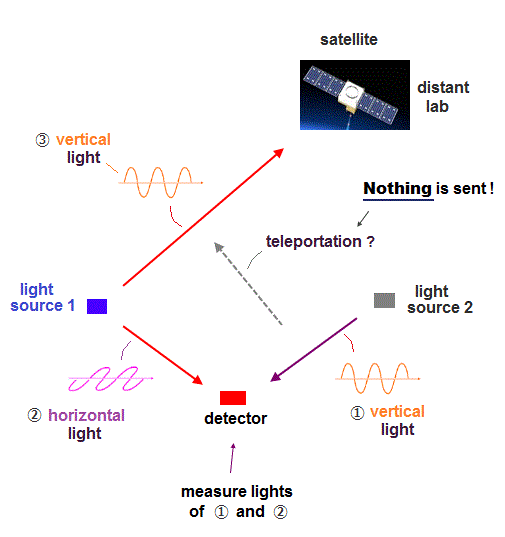
Today's quantum computers are useless, too error-prone (= noisy ) to simulate anything ( this-2nd-paragraph, this-p.2-left-2nd-paragraph ).
This-p.2-left-1~2nd-paragraphs (2025) say -- Error-prone quantum
" In the current NISQ (Noisy
Intermediate-Scale Quantum) era, real-world quantum
circuits are notably affected by various noises analogous to faults (= errors ) in classical circuits"
The practical errorless classical computers are often used as noiseless quantum simulators ( this-p.9-upper ) that always outperformed today's noisy quantum computers.
↑ So the noiseless quantum simulators are just classical computers, Not quantum computers.
This-p.6-right-IV saying "Qiskit
Noiseless classical simulator"
p.9-right-V saying "exact (state vector) classical simulator (= errorless noiseless classical computers called simulators )"
This-p.1-left-1st-paragraph says -- Noiseless quantum = classical computer
"noiseless qubits can be routinely simulated
on a laptop (= classical computer )"
This-2nd-last-paragraph says -- Noiseless (= errorless ) classical computer
"noiseless weak.. is a classical simulation that allows sampling bitstrings computed by a given quantum circuit... Since No current prototype quantum computer is noiseless"
This-p.9-right-IV.1.1 says -- Ideal quantum (= classical ) computer
"An ideal simulator (or ideal device) is an idealized
quantum computer that is not affected by any noise
channel such as decoherence, gate errors, or readout
errors and which is numerically simulated on a classical machine"
Classical computers are often used as noisy quantum simulators mimicking today's error-prone useless quantum computers ( this-p.1-left-1st-paragraph, this-2~4th-paragraphs ).
This-p.5-right-last-paragraph~p.6 says -- Classical computer simulator
"In this work, three types of
computation were exploited: a noiseless ideal
simulator of a quantum processor (running on a
classical computer), a real simulator of quantum processor with noise model of a real device taken into account (running on a classical computer), and the real ( noisy ) IBM quantum processor"
This-p.4-right-A. says -- Quantum simulator = classical computer
"using a quantum simulator (= classical computer ) in
the idealized noiseless case ..,
We utilize a noisy simulator to understand how our approach would behave in a realistic noisy intermediate
scale (NISQ) quantum computer, which is affected by
multiple sources of noise from the environment and is
prone to errors during computations"
This-p.11-left-2nd-paragraph says Classical computer simulating noise
"the noiseless (= classical ) simulator's VQE
run converges to the correct result... Conversely, the
noisy simulator, incorporating the full spectrum of hardware noise (= quantum computers' errors ) reproduced for the same hardware (= today's error-prone quantum computers ), struggled
to maintain a consistent energy minimization pattern"
↑ The noiseless (= errorless ) classical computer's simulators always outperform today's noisy (= error-prone ) quantum computers.
Overhyped fake news tries to hide this fact.
(Fig.3) Quantum computers simulating medicine, drugs mean classical computers used as (misleading) quantum simulators or hybrid quantum computers.
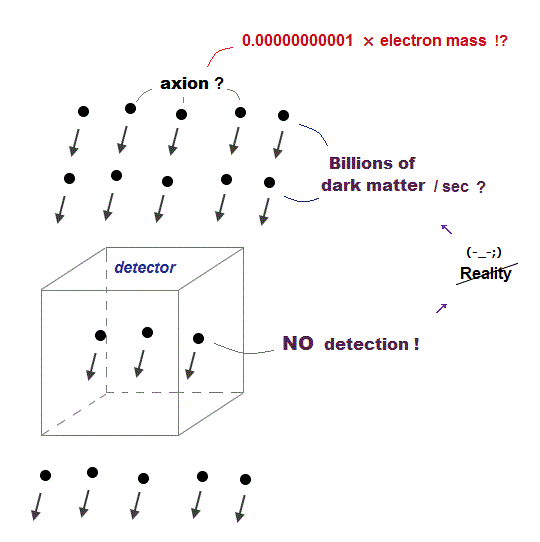
This overhyped news on quantum computers for drugs says ↓
6th-paragraph says -- Classical computer needed
"To address this gap, the team developed a hybrid quantum computing pipeline specifically targeted for practical drug discovery applications." ← Hybrid means a classical computer.
Not Ready quite yet says -- Useless quantum computer
"using quantum computers for current drug discovery faces significant limitations. For example, quantum computing is still plagued by longer computational times and errors, which impede its accuracy and efficiency in drug discovery" ← Quantum computers are useless.
↑ This research paper ( this-3rd-paragraph-link-to-paper ) ↓
p.2-Fig.1 shows -- Classical computer needed
this research used also a classical computer (= classical optimization ) as "hybrid computer (= today's useless quantum computer alone can do nothing )".
p.3-2nd-last-paragraph says -- Just 2 qubits
"The wave function of the active space can then be represented by a 2-qubit superconducting quantum device" ← just 2 qubits (= one qubit takes only 0 or 1 value ) are still Not a quantum computer.
p.4-Fig.3 shows -- Useless quantum computer
this research used only 2 qubits (= just 2 bitstring, ← still Not a quantum computer. 2 qubits alone cannot simulate anything without the help of a classical computer as the deceptive "hybrid" ).
p.7-last-paragraph says -- Worse quantum computer
"the time cost for quantum computers is larger than that for classical (= noiseless ) computers" ← Classical computers were far faster than quantum computers, so No quantum speed-up.
This hyped news say ↓
3rd-paragraph says -- Classical computer needed
"hybrid quantum-classical convolutional neural network (QCCNN) significantly outperforms traditional methods in breast cancer diagnosis"
Lower-The need for real opus says -- No quantum computer
"First, the experiments were conducted on classical hardware using simulated quantum computing environments" ← This research used only a classical computer, and useless quantum computers were Not used after all.
↑ This research paper ( this-3rd-paragraph-link-to-paper ) ↓
p.11-last-paragraph says -- Only classical computer used
"although the experiments in this study were performed on a conventional (= classical ) computer
where GPUs..."
↑ The misleading hybrid-quantum-classical methods mean just "classical computers without (useless) quantum computers."
The 5th paragraph of this hyped news says -- Classical computer needed
"This hybrid quantum model includes both classical and quantum layers,... Also, the analysis used only 5 qubits" ← one qubit can take only 0 or 1 value, so just 5 qubits are still Not a quantum computer.
↑ This research paper ( this-3rd-paragraph-link-to-paper ) ↓
p.4-Fig.1-(c) shows -- Just 5 useless qubits
Just 5 qubits (= just 5 bitstring which can be easily replaced by a classical computer ) is still Not a quantum computer nor able to calculate anything.
p.6-right-3rd-paragraph says -- No quantum computer
This research used Pennylane (= software ) simulator, which is just a classical computer ( this-9th-paragraph ).
p.10-left-1st-paragraph says -- Useless quantum method
"but it still relies on data labeled by an expert pathologist, so it is currently still dependent on an
external actor" ← Still useless quantum methods.
↑ So this research just used a classical computer for simulating some quantum algorithm, instead of using today's impractical quantum computers.
(Fig.4) The overhyped media often treats the classical computer's simulation of some quantum methods as (fake) quantum computer's advantage.
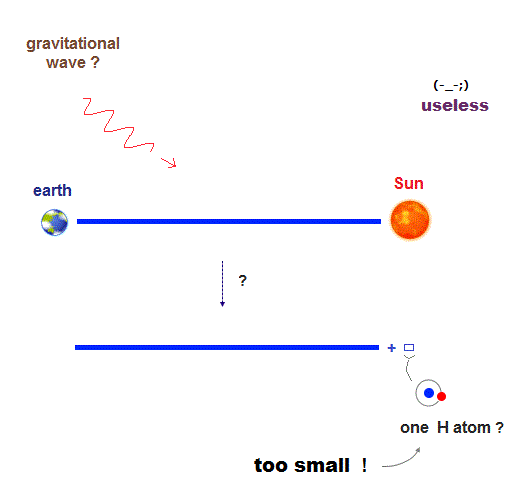
Insider brief of this hyped news (2025) says ↓ -- Fake quantum advantage
"IonQ and Ansys demonstrated that a hybrid quantum-classical algorithm (= just a classical computer ), when simulated, can outperform classical methods (= Not outperform a classical computer ) in engineering simulations, achieving up to 12% faster processing in blood pump design tests."
↑ This research paper ( this-last-link-to-paper ) ↓
p.1-abstract-2nd-paragraph says --
No quantum advantage
"We
also execute the VarQITE algorithm (= quantum algorithm ) on quantum hardware (IonQ
Aria and IonQ Forte) and find that the results are comparable to (= did Not outperform, classical computer's )
noiseless and noisy simulations"
p.5-Fig.3 shows --
Useless quantum computer
This research used only 5 qubits (= one qubit takes only 0 or 1 value, so still Not a quantum computer )
p.11-right-last-paragraph says --
Faster classical computer
"Since QPU (= useless quantum computers ) executions can often take much longer
than classical CPUs/GPUs" ← Classical computers were much faster than today's quantum computers.
↑ So this research just showed a (noiseless) classical computer's simulation of some quantum method outperformed some deliberately-chosen slow classical method, Not that quantum computers outperformed classical computers.
↑ This-updated version's p.12-left-last-paragraph and p.13-Fig.9 shows the noiseless simulator = classical computer gave more optimal solutions (= 0.0, = the first bar from the left, Fig.9-(A) ) than the error-prone IonQ-Forte quantum computer (= Fig.9-(B) ). ← A classical computer outperformed the quantum computer (= still Not a computer ).
The 3~4th paragraphs of this hyped news say -- Fake quantum advantage
"The resulting hybrid quantum approach (= Not quantum computer ) outperformed classical-only methods.." ← Fake quantum advantage
↑ This research paper ( this-3rd-paragraph-link-to-paper ) ↓
p.1-right-2nd-paragraph says -- No quantum computer used
"Our
experiments, conducted with noisy state vector simulators (= which is classical computer's simulator of quantum method, so No quantum computer was used in this research )"
p.6-left-1st-paragraph says -- Only classical computer used
"We performed experiments using 3 NVIDIA GPU (= classical computer ) types:.. The H100s
were used to perform the 18-qubit experiments" ← This research used only classical computers to simulate only (imaginary) 18 qubits, so No quantum computer advantage.
↑ This-p.9-VI conclusion-last says -- still No quantum computer
"we
plan to validate our findings by performing inference and
training on physical quantum hardware (= still "planning", Not executed on quantum computer hardware )".
The 4~5th paragraphs of this say -- Fake quantum advantage
"VQE is a hybrid quantum-classical algorithm (= just classical computer ) that uses both quantum and classical computers to estimate the ground state energy of a molecular system. "
"researchers were able to simulate the magnetic structure of the molecule more effectively than classical simulations." ← untrue, fake news.
↑ This research paper ( this-1st-paragraph-link-to-paper ) ↓
p.5-Fig.5 says -- Just 6 qubits
just 6 qubits (= still Not a quantum computer nor able to calculate molecular energy ).
p.6-Fig.6 showed -- Superior Classical computer
Only a noiseless classical simulator (= QASM = blue line ) reached the exact ground-state energy value = 0, while a IBM quantum computer hardware (= quantum-classical hybrid computer ) or a noisy simulator failed to give exact energy value.
↑ No quantum computer advantage. Even the 6 error-prone qubits were enough to prevent the hybrid computer from giving accurate values, while a classical computer's simulator always gave exact values..
(Fig.5) Instead of today's useless error-prone quantum computers, the practical classical computers are used as (misleading) hybrid quantum computers.
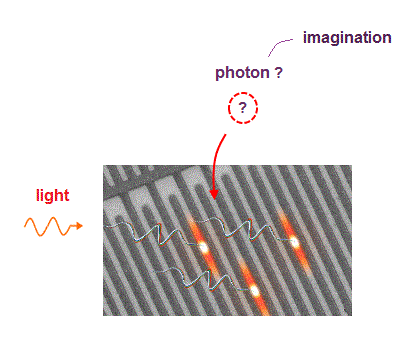
This-Anderson model and why.. says -- Just 5 qubits
"they used a five-qubit nuclear magnetic resonance (NMR) quantum processor" ← Just 5 qubits (= 5 bitstring ) is still Not a quantum computer.
This-middle-Prospects and challenges says -- Useless quantum computer
"Although quantum computers are still in the noisy intermediate-scale quantum era—prone to errors and limited by the number of qubits" ← Today's error-prone quantum computers are noisy, useless.
↑ This research paper ( this-1st-paragraph-link-to-paper ) ↓
p.1-right-2nd-paragraph says -- Classical computer needed
"through a
feedback loop that combines quantum and classical computations (for estimating some abstract quantum model expressing electrons' energy )." ← Hybrid classical computer. Today's quantum computers alone can calculate nothing.
p.3-Fig.2 shows only 5 qubits (= still Not a quantum computer nor able to calculate anything ).
p.4-Fig.3-(a)(b)(c) showed -- Wrong quantum computer
These error-prone 5 qubits' results (= hybrid quantum-classical computer = Exp ) deviated from the exact theoretical (= Theo = dashed straight line ) values calculated by a classical computer's simulation..
↑ No quantum computer's advantage nor utility. Even 5 qubits were too error-prone to give right answers.
This hyped news on calculating molecular energy ↓
Insider Brief says -- Just 20 qubits
"The hybrid approach.. makes it possible to calculate the properties of molecules using just 20 qubits, (= one qubit takes only 0 or 1 value, so still Not a quantum computer )"
3rd-paragraph says -- Only classical computer was used
" The Hyperion-1 emulator uses Genci supercomputers (= just a classical computer )"
7th-paragraph says -- Still No quantum computers was used
"Next steps include deploying these algorithms on existing noisy (= quantum ) machines.."
↑ So this research used only a classical computer called emulator instead of today's error-prone useless quantum computer.
This hyped news (2025) ↓
11th-paragraph says -- Just 22 qubits
"The circuits involved up to 22 qubits," ← just 22 qubits (= one qubit can take only 0 or 1 value ) are useless, far from a (illusory) practical quantum computer needing millions of qubits ( this-4th-paragraph ).
16th-paragraph says -- Error-prone quantum computer
"While the results are Not yet accurate enough for practical chemistry use" ← still too error-prone to give right answers, quantum error correction is impossible despite extremely long years of researches.
↑ This research paper of Quantinuum ( this-2nd-paragraph-link-to-paper ) ↓
p.3-left-1st-paragraph & Fig.1 shows -- Classical computer needed
This research used classical computer's calculation, too. ← Today's useless quantum computers alone can Not calculate quantum chemistry at all.
p.5-right-1st-paragraph says -- No quantum error correction
"a QED (= quantum error detection ) round
that discards on the detection of any error. This process
is repeated until no error is detected." ← Not error correction (= contrary to hyped news ) but just discarding errors and repeating until success, which is impractical, too time-consuming.
p.9-right-2nd-paragraph say -- Error-prone quantum computer
"Though the error of estimated energy is still larger than the chemical precision"
p.9-right-3rd-paragraph says -- Correct classical emulator
"Numerical simulation on an emulator with tunable
noise parameters suggests that incoherent memory noise
is the main source of error for encoded circuits" ← Errorless classical computer with tunable error or noise level is superior to the error-prone impractical quantum computer.
(Fig.6) Today's quantum computers are useless, too error-prone to use for (hyped) AI, neural network, machine learning.
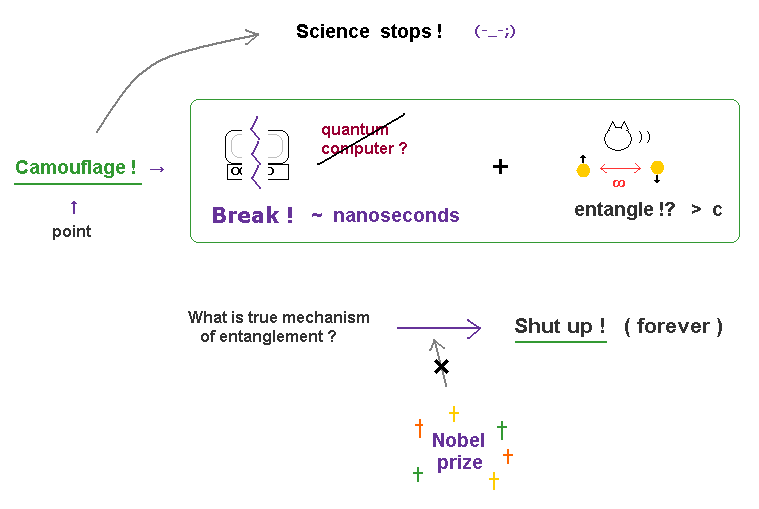
This-7th-paragraph says -- Fake quantum advantage
"The first area where quantum advantage (= wrong ) has been reached for AI tools is image classification. We recently published a peer-reviewed paper that a quantum algorithm (= Not conducted by quantum computers ) can better predict breast cancer than traditional AI."
↑ This research paper ( this-7th-paragraph ) ↓
p.4-left-III says -- Just 9 qubits
"with kernel sizes of 2 × 2 (four qubits) and 3 × 3 ( nine qubits )" → Just 9 qubits can take only 29 = 512 numbers (= one qubit can take only 0 and 1 bit value ), which can be easily simulated by today's classical computer, so No quantum advantage.
p.6-Fig.4 show -- Superior classical computer
The noiseless classical computer's simulator of quantum method called DAOCNN gave the best accurate results (= highest AUC, which is a measure of accuracy = AUC = 1 is best ), compared to the worse noisy ( r > 0 ) quantum computers.
↑ No advantage of the quantum computer with only 9 qubits that can be easily outperformed by a noiseless (= errorless ) classical computer's simulator.
The 2nd paragraph of this says -- Classical computer needed
"This
hybrid quantum-classical model (= just
classical computer )... in tasks involving pattern recognition and classification. The implications are significant, with potential (= still
useless ) applications"
↑ This research paper ( this-last ) ↓
p.1-abstract says -- Just 4 qubits
4-qubit quantum circuit (= just 4 qubits can take 24 = 16 values, that can be easily simulated or outperformed by a
classical computer ).
p.3-2nd-last-paragraph says -- No quantum advantage
"While our work does
Not aim to achieve computational
supremacy," ← No quantum computer supremacy
See Quantum AI and machine learning use just classical computers.
This hyped news says ↓
7th-paragraph says -- No quantum computer
"The goal was to classify data points using a photonic quantum computer (= this research used just two photons, which are useless far from a quantum computer )"
8th-paragraph says Fake quantum advantage
"The experiment showed that already small-sized quantum processors can perform better than conventional algorithms (= this conventional algorithm does Not mean classical computers, so No quantum advantage, contrary to the hyped headline )."
↑ This or this research paper ↓
p.4-Fig.3-b-sentences says -- Just 2 photons
"The degree of indistinguishability can then be tuned
through a delay line...
The quantum and classical kernel measurements are obtained,
respectively, by injecting two indistinguishable and distinguishable photons into
the third and fourth modes of the circuits,..
↑ So this research just used only two photons (= two qubits, still Not a quantum computer, this or this-8th-paragraph ) injected into only 6 paths, and detected only two photons (= all these 26 = 64 patterns can be easily simulated or outperformed by a classical computer, as shown in this Fig.3b- theoretical = classical probability = so No quantum computer advantage ).
↑ Their " classical counterpart" means using only two distinguishable photons, which does Not mean the use of a classical computer, so No advantage of quantum computer (= quantum computer means just two indistinguishable photons by tuning photon delay line, which are still Not a computer ) over a classical computer.
↑ All the alleged machine learning manipulations to adjust the photonic circuit's light phase shifter were conducted by an ordinary classical computer, because just two photons (= two qubits 01 = still Not a quantum computer ) alone can Not do anything.
↑ This same paper's p.7-1st, 3rd paragraphs say -- No quantum advantage
"It is also noteworthy that the possibility of obtaining
a quantum advantage.. remains an open
question"
"In our case, an advantage... there is No rigorous proof of
that yet"
← still No quantum advantage, contrary to this overhyped fake news.
(Fig.7) Today's error-prone quantum computers cannot give right answers unless they illegitimately rely on classical computers as error mitigation (= Not error correction )
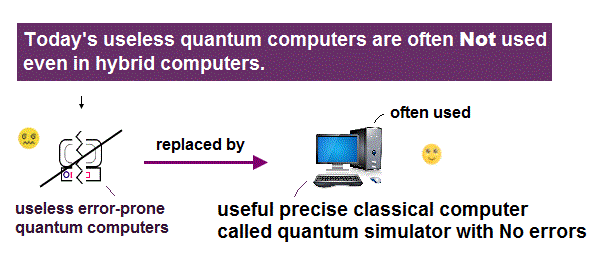
The 3rd paragraph of this hyped news says -- No quantum computer
"They successfully used the technology to mimic basic parts of nuclear physics using IBM quantum computers with over 100 qubits (= still Not a quantum computer )."
↑ This research paper ( this-last-link-to-paper ) ↓
p.1-abstract-lower says -- No quantum advantage
"After introduction
of an improved error-mitigation technique, which we call operator decoherence renormalization (= ODR = quantum computer's errors were illegitimately mitigated, based on comparison with classical computer's exact known answers, so No quantum advantage, this-p.5-right-(31), this-p.10-left-4th-paragraph ),.."
".. charge-charge correlators obtained from the quantum computers are found to be in good agreement with (= did Not outperform ) classical matrix product state (= MPS ) simulations." ← No quantum computer advantage
p.12-Table IV shows -- Error-prone quantum computer
"IBM error-prone quantum computers (= ibm_brisbane, cusco )" gave wrong answers different from the noiseless (= error-free ) classical MPS simulator ( this-p.17-Fig.11 ), even after illegitimate error-mitigation = ODR.
p.26-Fig.17 showed -- Inferior quantum computer
The error-prone quantum computer (= ibm_cusco ) could Not give the same exact values as the noiseless (= errorless ) MPS classical simulator.
↑ So today's error-prone quantum computers are unable to give right answers, hence No quantum advantage.
This hyped news (2025) say ↓
Insider brief says -- Fake quantum supremacy
"offer evidence that quantum computers can perform key particle collision calculations faster than traditional supercomputers." ←
fake news
Limitations and future directions say -- Useless quantum computer
"The current generation of quantum hardware—.. ( NISQ) devices - does
Not yet have the capacity to run these algorithms... indicate that even for relatively simple calculations, a quantum circuit may require millions of quantum gate operations and qubits that are currently
beyond the reach of commercial devices" ← Today's quantum computers are impractical.
↑ This-research paper ( this-2nd-paragraph-link-to-paper ) ↓
p.20(or p.19)-1st-paragraph says just 6~9-qubit. ← still Not a quantum computer.
p.23-2nd-paragraph says -- Classical computer used
"we ran noiseless simulations (= which is just a classical computer, so a quantum computer was Not used, after all )"
p.28-5th-paragraph says -- Impractical quantum computer
"Our findings suggest that such applications are unlikely to be practical during the noisy
intermediate-scale quantum (NISQ) era" ← Today's error-prone quantum computers were too impractical to use for ( particle physics ) calculations.
The 9th-paragraph of this hyped news says -- Fake quantum advantage
"the considered simulations belong to a class of classically hard—but quantumly easy—problems..... This result shows that quantum computers can hold a computational advantage for these Gaussian bosonic circuit problems." ← wrong, fake news.
↑ This research paper ↓
p.1-abstract says nothing about quantum computer's advantage nor utility, contrary to the above hyped news.
p.4-right-lower & p.5-Fig.3 says -- No quantum computer used
3rd-paragraph says -- Fake quantum advantage
"demonstrate a quantum exponential scaling advantage, using two 127-qubit IBM Quantum Eagle processor-powered quantum computers"
6th-paragraph says -- No quantum speed-up
"He clarifies that a scaling speedup doesn't mean that you can do things, say, 100 times faster" ← Fake slower quantum scaling advantage
3rd-last paragraph says -- Useless quantum computer
"this result doesn't have practical applications" ← useless fake quantum advantage.
↑ This research paper ↓
p.1-abstract says -- Classical computer better
" ideal, noiseless
quantum computers (= meaning " classical computers", this-2nd~4th-paragraphs ),.. for circuits involving up to 58 qubits (= just 58 bitstring, still Not a quantum computer ), we demonstrate an exponential speedup, albeit of a lower quality than
the speedup predicted for the noiseless algorithm" ← so this fake quantum advantage was outperformed by classical computer's simulation of a ideal noiseless quantum computer.
p.1-left says -- Error-prone quantum computer
"Quantum algorithms have been known to outperform
classical algorithms... assuming
that they run on ideal, noiseless quantum devices (= just noiseless classical computers ). However,
today’s noisy intermediate-scale quantum (NISQ)
devices.. highly susceptible to performance degradation due to decoherence and control errors" ← Today's error-prone useless quantum computers are far from ideal noiseless.
p.2-right-2nd-paragraph says -- No quantum advantage
"the oracle we
construct in this work can be efficiently simulated by a
classical computer." ← No quantum computer advantage.
p.9-Fig.3,
p.9-right-last-paragarph says -- Wrong quantum computer
"while far from
exhibiting the ideal quantum scaling in both the
Sherbrooke and Brisbane cases" ← today's error-prone quantum computers give only wrong results different from exact errorless classical computers disguised as ideal noiseless quantum simulators.
↑ Their IBM quantum computers called Brisbane and Sherbooke (= this-p.24-Table II ) were too noisy and too error-prone to give right answers. ← The error-prone IBM's Brisbane and Sherbooke machines could Not give the right answers obtained by the ideal quantum (= noiseless classical ) computer ( this-p.9-Fig.3. p.11-Fig.5 ).
This-p.5-right-last-paragraph says -- Classical (= ideal quantum ) computer
" a noiseless ideal
simulator of a quantum processor (running on a
classical computer)"
↑ So this research's so-called quantum advantage is fake, just meaning some quantum algorithm showing exponential speed-up with respect to problem's size, where the current error-prone noisy quantum computer always gave wrong answers, which was outperformed by the errorless classical computer's simulation of the (illusory) ideal noiseless quantum computer
As a result, there is No real quantum advantage nor utility in this hyped fake quantum scaling advantage.
Insider Brief of this hyped news (2025) says -- Fake quantum advantage
"The algorithm rigorously proves quantum speedup for searches over uncountably infinite solution spaces" ← Fake news
↑ This research paper ↓
p.6-right-lower ~ p.7-left says -- No quantum computer used
"By simulating the quantum search algorithm
on a classical CPU server"
"The results clearly demonstrate that the quantum search (= conducted by a classical computer, Not by a quantum computer ) requires significantly fewer iterations than the classical counterpart for each optimization problem, showcasing a distinct quadratic advantage"
↑ So this research used only classical computer (= CPU ) simulation of some quantum search algorithm, hence, No quantum computer's advantage.
The last paragraph of this (2025) says -- Classical computer needed
"accurately model the electronic structure of iron sulfides,... how the near-term quantum computers of today can provide scientific value when integrated with powerful classical infrastructure." ← classical computer was necessary for today's error-prone useless quantum computers to calculate something.
↑ The 11th-paragaph of the related news says -- No quantum advantage
"The current paper doesn't quite get us to the point where you can definitively say that we are better than any classical algorithm" ← No quantum computer's advantage.
↑ This research paper ( this ↓ )
p.1-abstract says -- Classical computer needed
"Here, we incorporate quantum computations of chemistry.., using up to 6400 nodes
of the supercomputer Fugaku (= classical computer ) to assist a quantum
computer with a Heron superconducting processor. We simulate the N2 triple bond breaking.. using 58, 45 and 77 qubits (= one qubit can take only 0 or 1 value, so just 77 qubits are still Not a quantum computer ).
p.2-Figure 1 shows -- Classical computer needed
Almost all calculations in this research were conducted by classical (super-) computers instead of useless IBM quantum computer.
p.5-right-1st-paragraph says -- Good classical method
"Amongst the classical SCI methods,
Heat-Bath Configuration Interaction ( HCI ) obtains
the best results for N2 and will be our reference classical
method in all the other experiment"
p.6-Figure 4-left shows -- Classical beat quantum computer.
The classical HCI (= black line ) obtained the most exact (= lowest ) molecular energy E, which is better and lower than the erroneous quantum computer's energy (= brown circles = correctly, hybrid-classical computer. Quantum computer alone can calculate nothing ).
p.7-left-last-paragraph says -- No quantum advantage
"We see that, even if the quantum solutions produced are worse than other classical
methods, "
↑ Error-prone quantum computer was worse than classical computer, showing No quantum computer's advantage.

Feel free to link to this site.